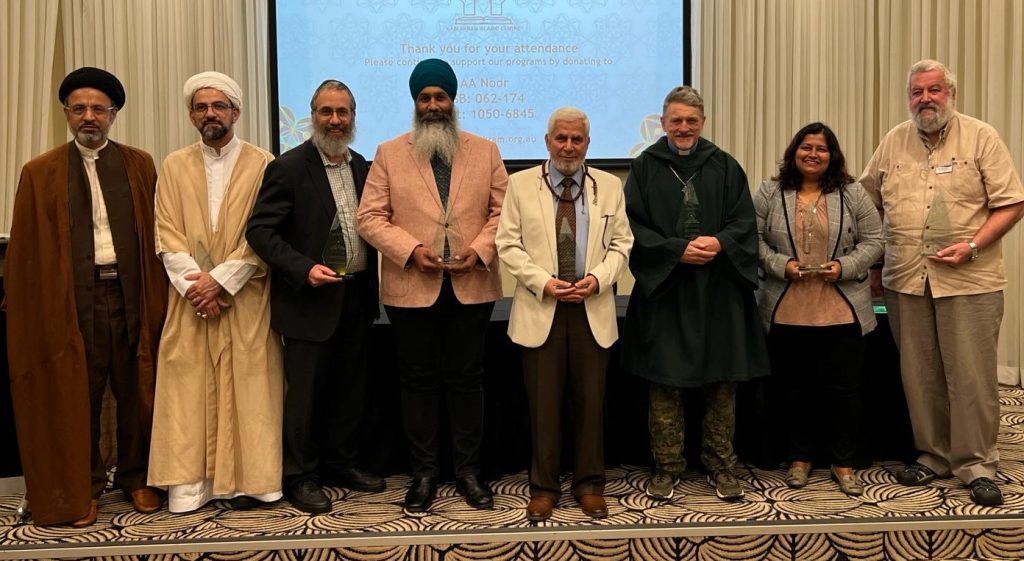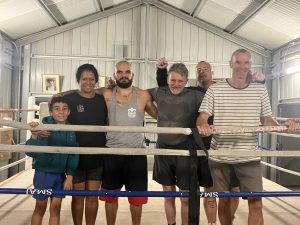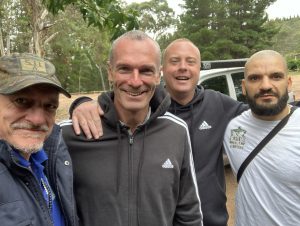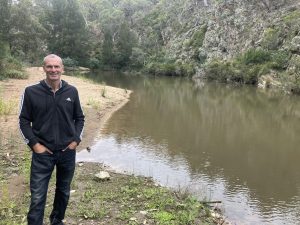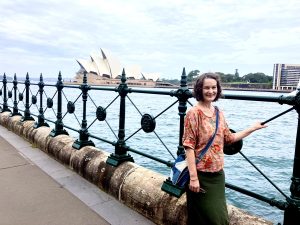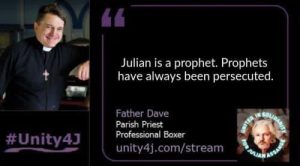“For Jews demand signs and Greeks desire wisdom, but we proclaim Christ crucified, a stumbling block to Jews and foolishness to Gentiles, but to those who are the called, both Jews and Greeks, Christ the power of God and the wisdom of God.” (1 Corinthians 1:22-24)
Hi Fighter,
The Christian message is counter cultural. That’s my summary of the snippet of wisdom above.
Paul was writing to the church in Corinth – a community that combined a blend of cultures. The first members of the church would have been Jews living in Corinth, but locals were also joining. Further, the Jews of Corinth would have been thoroughly Hellenised. Greek culture had infiltrated everything, which is why our New Testament was originally written and published in Greek.
Having said that, Paul could still see a clear distinction in the way that Jews and Greeks thought about their religion. Greeks were always looking for something rational – something that was logically coherent and that helped them make sense of the world. Paul’s fellow Jews, on the other hand, were more impressed by miraculous signs and wonders.
Forgive me, but when I read this, my mind goes to the historic philosophical debate between rationalism and empiricism. I say ‘forgive me’ because my first love is philosophy, and I’m going to have to stop myself from rabbiting on here about the history of Western thought while citing all my favourite philosophers.
Let’s just say that Socrates and Plato and other ancient Greek philosophers believed that logic was the only path to truth. People like Ren Descartes (of “I think therefore I am” fame) would follow in their footsteps, teaching that rational thinking is the only firm foundation for knowledge.
In the opposing corner to the rationalists are the empiricists, who believe that we derive truth from our senses – from what we can see, hear, touch, taste and smell. The fathers of Empiricism are characters like John Locke, Francis Bacon and David Hume. What we call ‘scientific method’ is a form of empiricism. It involves testing what we can experience as a way of ascertaining truth.
Historically, empiricism won the battle for the European mind. It still dominates our intellectual culture today. We say ‘follow the science’ as if it’s self-evident that testing what we can see, touch, hear, taste and smell is always the best way to discover truth. Saint Paul would not have agreed. He would not have disparaged all science, but he would have seen its limitations.
“For Jews demand signs and Greeks desire wisdom, but we proclaim Christ crucified, a stumbling block to Jews and foolishness to Gentiles, but to those who are the called, both Jews and Greeks, Christ the power of God and the wisdom of God.” (1 Corinthians 1:22-24)
Paul’s Jewish peers wanted clearly demonstrable ‘proofs’ before they would buy into his message about Jesus and His resurrection. Paul’s Greek contemporaries wanted a compelling argument. Paul couldn’t satisfy either group. Instead, he preached ‘Christ crucified’, which, to the rationalists, seemed to make no sense at all, and to the empiricists, didn’t prove anything. As my philosophical hero, Kierkegaard, would later say (in his “Concluding Unscientific Postscript”), the Christian message is “an offense to the Jews, foolishness to the Greeks, and an absurdity to the understanding”.
The truth is that there are different ways of knowing things. The way I know that my partner loves me is qualitatively different from the way I know that it’s going to rain, and the history of debate between empiricists and rationalists is a reminder that people can reach truth from very different paths. Moreover, the path to truth that you take tends to determine the truths that you uncover.
Saint Paul believed that there is a path to truth that by-passes both scientific testing and logical argument. It is the path of spiritual insight that leads us to embrace what some would consider absurd, such as it being ‘better to give than to receive’, that the crucifixion of Jesus brings about forgiveness and healing, and that good will ultimately triumph over evil in our world. None of these things can be tested or proven by rational argument. Even so, ‘those who are called” recognise in these truths the wisdom of God!
“We proclaim Christ crucified, a stumbling block to Jews and foolishness to Gentiles, but to those who are the called, both Jews and Greeks, Christ the power of God and the wisdom of God. For God’s foolishness is wiser than human wisdom, and God’s weakness is stronger than human strength.” (1 Corinthians 1:22-25)
Being a person of faith means being counter cultural. We reject the dogma that ‘following the science’ is the only path to truth. We recognise the limitations of human logic and we take hold of the truths that God reveals to us.
While acknowledging that both science and logic have their place, we ground our lives on truths that, by contemporary standards, can never be considered rational. Despite all empirical evidence to the contrary, we believe that we are loved, that we are forgiven, and that, in the end, all will be well.
Our Sunday Eucharist
We had another wonderful Sunday Eucharist last weekend, and a bigger crowd joining the panel than we have had for some time.
We were broadcasting from Binacrombi and I brought the crowd with me. Thank you to Phil Greer and Fadi Alim who both made appearances on the broadcast, and thank you to Fadi’s partner and son – Chenise and Logan – who contributed their presence while staying off-camera. Thank you too to my old friends Doug Pyeatt and Andrew Madry, who joined the panel from Florida and Sydney, respectively, and a special thank you to Father John Ashfield who joined us via a pre-recorded video.
Father John is an old friend of Father Elias’, and a fellow priest in the Community of Saint John. It was great of him to take time out of his busy schedule to share his thoughts on Paul’s Letter to the Romans while in Rome! I’ve published John’s homily and transcript on the member site or you can listen to it as a part of the broadcast.
This Sunday is the first Sunday of the month which means I’ll be privileged to have David Baldwin, Tom Toby and Dr Stephen Sizer back with me on the panel. Join us from noon if you can at TheSundayEucharist.com, or on Facebook, YouTube, Twitter, LinkedIn or Streamyard.
I look forward to sharing this Eucharist with you. 😊
Let me work your corner
If you’d like to see my work continue, please click here to make a one-off donation, If you can afford a monthly contribution, sign up at Patreon.com and choose either:
Middleweight – $10/month (community mentoring)
- Enrol in the Fighting Fit training program
- Access member-only training videos
- Engage in the members-only forum
Super-Middleweight $50/month (remote mentoring)
- All of the above +
- One-on-one mentoring via email, phone, or Skype
Heavyweight – $100/month (in-person mentoring)
- All of the above +
- Training with Father Dave’s Old School Boxing Academy
Superheavyweight – $200/month (intensive in-person mentoring)
- All of the above +
- One weekend per month at Binacrombi Bush Camp.
Every dollar helps keep the wheels turning – the websites, the newsletters, the broadcasts, the boxing club and the bush camp. Even so, I don’t want this to be a one-way process. Please download and fill out the Physical and Spiritual Fitness Assessment form and get it back to me, and then go and sign up at Patreon.com.
What’s On?
- Saturday, March 2nd – Boxing @Legends Gym in Kensington from 2pm
- Sunday, March 3rd – Our Eucharist from midday via thesundayeucharist.com (or through Facebook , YouTube, Twitter, LinkedIn or Streamyard).
- Tuesday, March 5th– Boxing at The Mundine Gym in Redfern from 6 pm.
- Thursday, March 7th – Boxing at The Mundine Gym in Redfern from 6 pm.
- March 8th to 10th – @Binacrombi. Please join me.
We had a magnificent weekend at Binacrombi last weekend. I had a fine team there to train with me, and we broadcast the four rounds I did with my new best mate, Fadi Alim. If you appreciated the wisdom he shared during our Sunday Eucharist, you may enjoy even more the expertise he demonstrated in the boxing ring!
I’m hoping to have another solid team join me at Binacrombi next weekend (March 8 to 10). I can offer you two days of boxing, running, training, fighting, praying, singing, sharing and feasting. Of course, you can choose which (if any) of those activities you actually participate in, but they will all be on offer. Call 1800 620 706 if you’re interested so that I can book you a cabin.
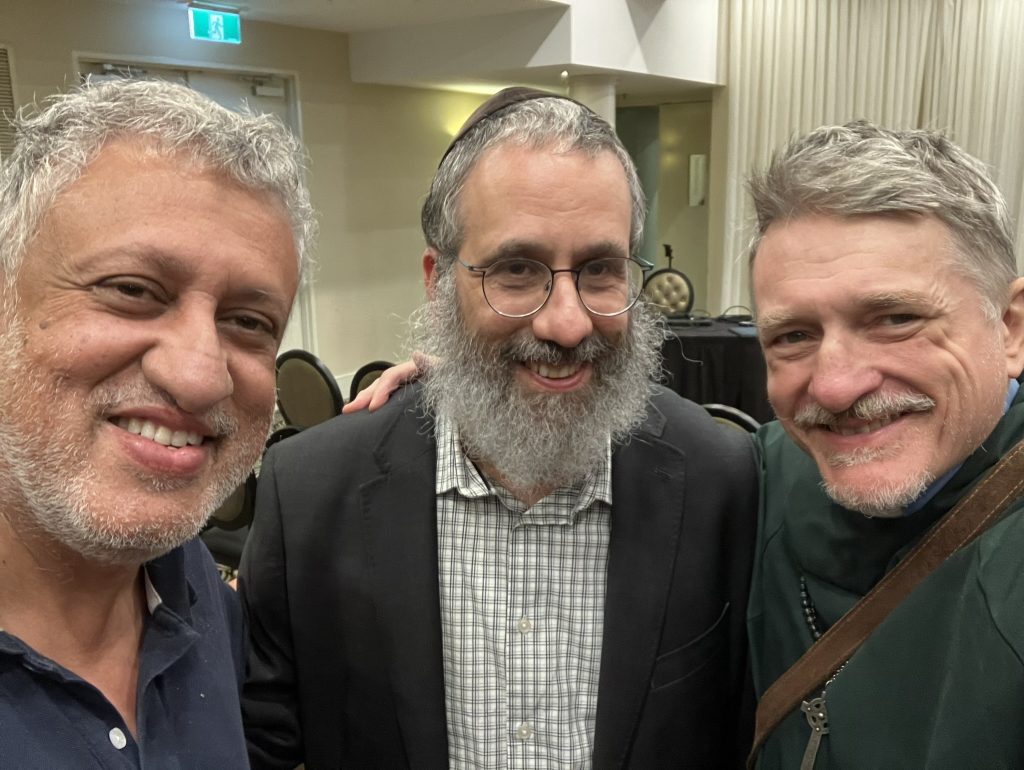
The other highlight from my last week was the interfaith seminar I was involved in last Monday. Our topic was “The Promised Saviour”, and I was very interested to hear some details as to what sort of Messiah today’s Jews are expecting, and how the Shia Muslim hope for the return of Al Mahdi compares with Christian expectations for the return of Jesus.
Unfortunately, I don’t yet have access to video recordings of the addresses given that evening. All I can offer is the transcript of my own address, where I talk about the Christian hope for the return of Jesus, and how some fringe groups have been keen to predict exactly when that will happen, and how one group (Christian Zionists) believe that they can hurry Jesus along by bringing on a world war!
So … there’s been quite a few things published this week:
- There’s Father John Ashfield’s homily on the member site. Click here.
- My speech on ‘The Promised Saviour’ on fatherdave.com.au. Click here.
- Thank you to Ian Rose for recording the ‘Bring Him Home’ plea I made outside the Prime Ministers’ office, calling for mercy on Julian Assange (click here).
- Father Mark and I have continued to publish to www.israelandpalestine.org, and, if you haven’t seen it, I’d especially recommend the speech given by Dr Ralph Wilde at the International Court of Justice this week. You’ll find that here.
In closing today, I want to share with you a promotional video put together by my old boxing nemesis, Billy Kinbacher. Bill and I have had two fights. I won the first and he won the second. There needs to be a decider. Bill has put together the clip that you’ll see below, and he has evidently convinced himself that he is going to win the next bout. I am not convinced.
 I’m pretty confident that I will win the decider, though nothing can be certain in boxing this side of the final bell. Either way, I will need you to help if I’m going to be ready. For starters, I’ll need someone to help me put together a response to Bill’s challenge.
I’m pretty confident that I will win the decider, though nothing can be certain in boxing this side of the final bell. Either way, I will need you to help if I’m going to be ready. For starters, I’ll need someone to help me put together a response to Bill’s challenge.
Perhaps you have skills as a videographer and wouldn’t mind joining me for a weekend at Binacrombi where we could put a reel together that we can post as a rejoinder? I’ll then need help building my fitness and speed and skills before the big event.
When will that all happen? I’m not sure, but I want to start the preparations now. Can you help me?
Keep praying for Julian. Keep praying for Gaza. Don’t give up the fight. As the hymnist says, “This day the noise of battle. The next the victor’s song.”
Your brother in the Good Fight,
Dave
www.fatherdave.org
www.fighting-fathers.com
www.thesundayeucharist.com
www.binacrombi.com.au
www.oldschoolboxing.academy
www.israelandpalestine.org
www.prayersforsyria.com
www.boxersforpeace.com
www.warriorweekends.com
P.S. There’s still time to pick up some artwork created by my darling daughter, Imogen, at Fightshop.biz
About Father Dave Smith
Preacher, Pugilist, Activist, Father of four



